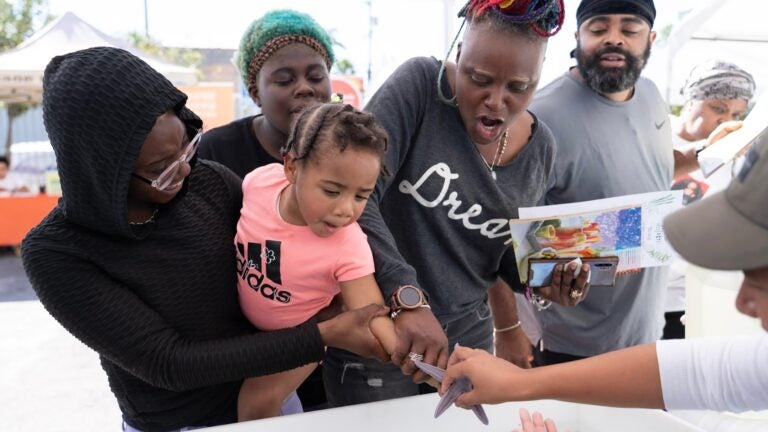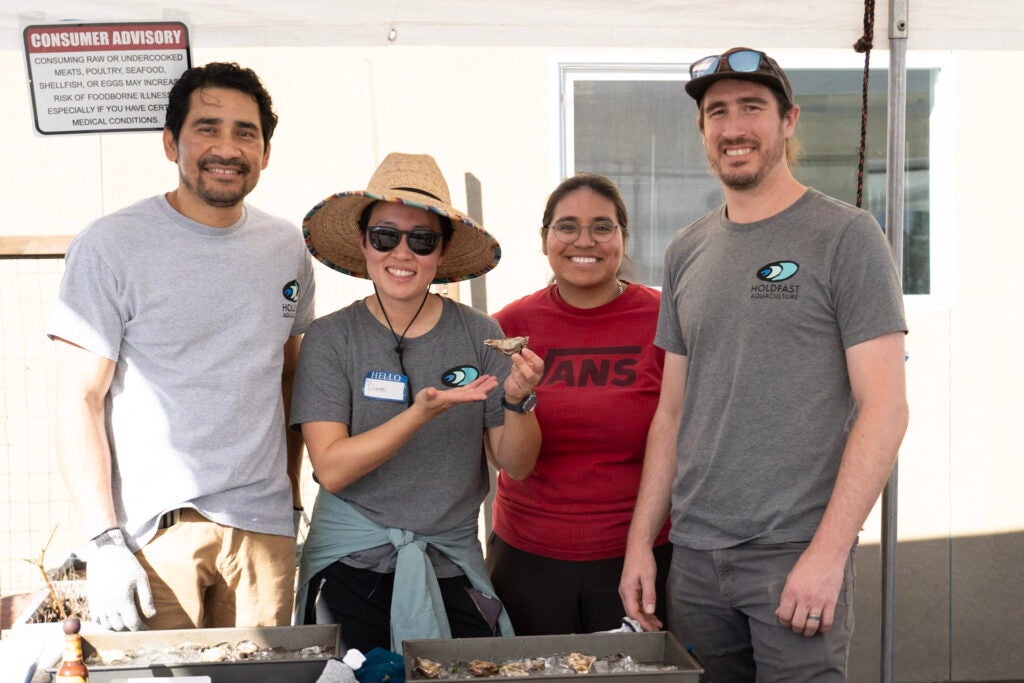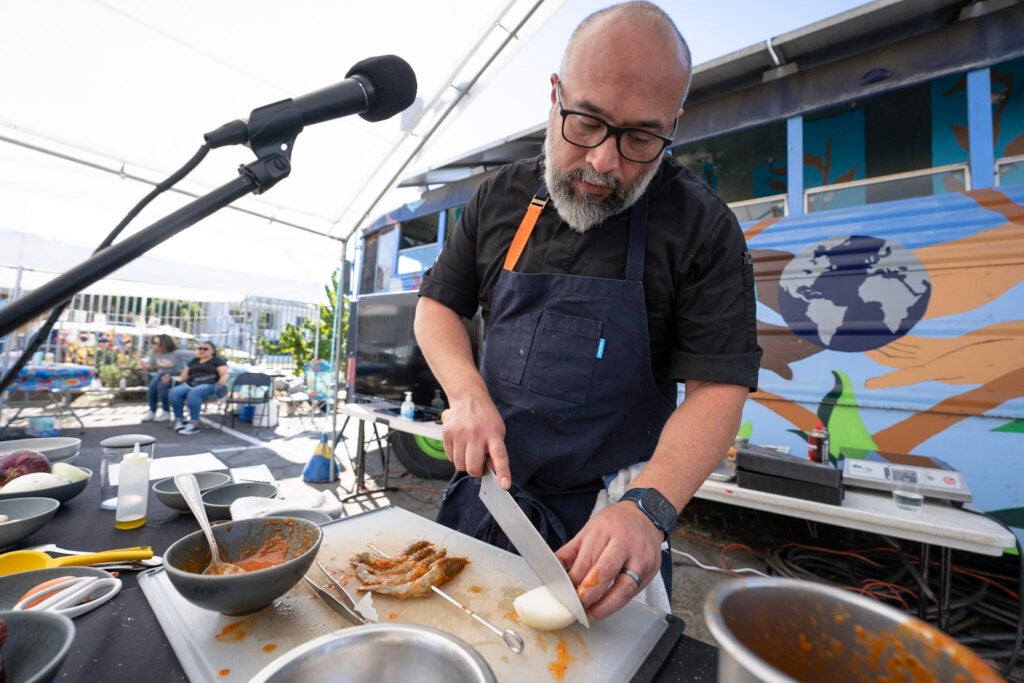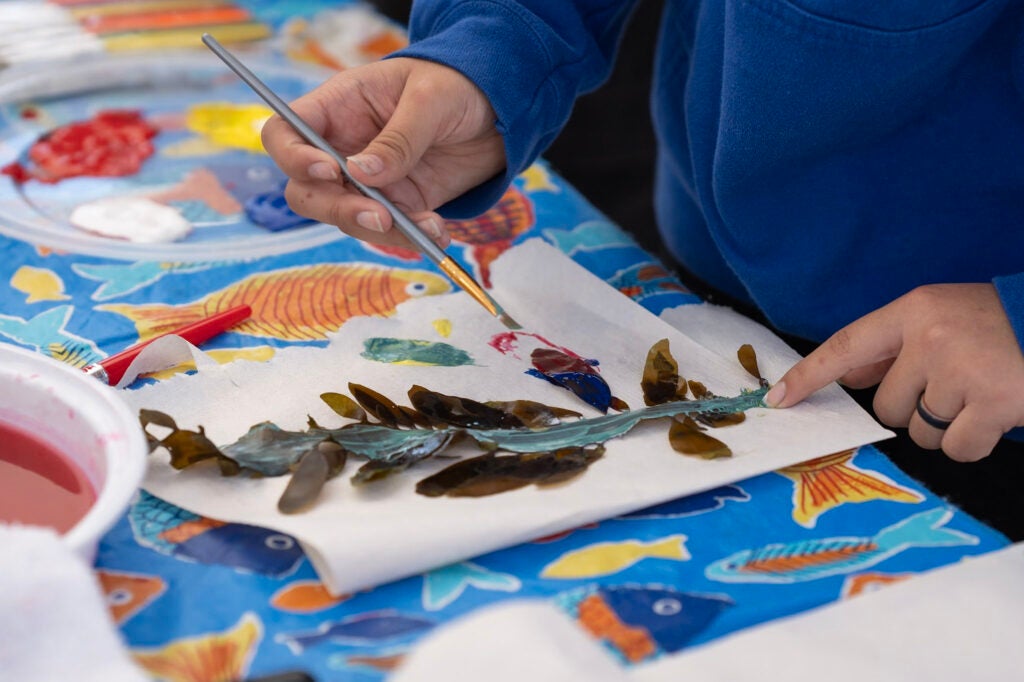
Increasing Seafood Education and Availability
Do you know what’s fishy? Seafood has incredible nutritional benefits, which is why the USDA recommends individuals have at least two servings per week. Around 80% of Americans, however, fall short of reaching that goal due to factors like price, availability, and awareness – factors that the South Central Sustainable Seafood Festival aimed to solve. The festival was a celebration of the South Central Sustainable Seafood Hub, which aims to be a trusted community-based resource and deliver sustainable seafood directly to residents of South Central Los Angeles.
The festival provided a bounty of seafood to taste, cooking demonstrations to see, community organization booths to learn from, and so much more. Through the collaborative efforts of a wide range of partners—Community Services Unlimited, the Village Market Place, USC Sea Grant, the USC Wrigley Institute for Environment and Sustainability, Holdfast Aquaculture, San Diego State University, and Santa Barbara Mariculture—the festival was one of the first steps toward facilitating actual, equitable exchange of seafood in South Central LA.

Cooking Seafood with Waves of Flavor
When all was said and done, over 160 attendees consumed around 260 pounds of shellfish and 6 pounds of seaweed. The oysters were personalized to each individual’s taste with tabasco, shallots, a plethora of other toppings, or nothing at all. Marlene Sanchez from Community Services Unlimited made steamed garlic mussels in one cooking demonstration, and Gilberto Cetina, chef and owner of Holbox, used the shrimp – and a tandoor oven – in his cooking demonstration; both dishes were hits with attendees.
Melo Lemus at Community Services Unlimited says that, “allowing attendees to see and experience a food they might not have been familiar with previously gives them…the confidence to go home and prepare these items in their own kitchens. Beyond that, the act of breaking bread and eating together is a community building activity in itself, which is especially vital as we try to build a hub that provides more accessibility to local seafood.”
By the end of the Seafood Festival, 100 pounds of mussels were sent home in 50 recipe kits to households in South Central LA. Attendees could then use the confidence they gained by watching and tasting the meals from the demonstrations and replicate the steamed garlic mussel recipe at home. Being able to cook seafood at home is important for communities who may not experience seafood often outside of restaurant settings to gain exposure to it and normalize its presence in home kitchens.

Bringing the “Sea” to South Central LA
The touch tank was a particular success, as it allowed attendees an up-close glimpse of sea creatures like bat stars, sea cucumbers, wavy turban snails, urchins, and more. The kid-centric booths were also huge hits among the attendees: kids loved the kelp maze, where they had the opportunity to navigate a “kelp forest” and find clues in a scavenger hunt. They had the chance to dress their own scuba diver, fisher, or farmer as part of a previously funded project with the Aquarium of the Pacific, USC Sea Grant, and Holdfast Aquaculture which marries kids’ play time with learning about professions within marine sciences (read more about the project here).
Maria Madrigal, USC Sea Grant’s Education Specialist, says that, “including kid-centric programming into any community event…welcomes all learners in a non-intimidating environment by inviting people to engage in whatever format calls to them, whether it is through art, immersion, exploration, play, etc.” Maria emphasizes that everyone learns differently, so providing a variety of avenues for exploration is important. Kids could also write about their relationship to and/or a memory involving seafood to place in the kelp maze and create unique prints using seaweed and paint.
Outside of kid-friendly activities, the South Central Sustainable Seafood Festival arranged booths to inform attendees about organizations like Heal the Bay, the Los Angeles Maritime Institute, the various programming that Community Services Unlimited hosts, and more.

More to Come!
Of course, the festival wouldn’t have been such a success, let alone possible, without the help of the 55 volunteers who passed out samples at the cooking demonstrations, checked attendees into the event, administered surveys, educated attendees about the various community organizations present, set up, cleaned up, and so much more. The South Central Sustainable Seafood Festival was one of the first installments of many in the Seafood Hub’s efforts to expand access to seafood in South Central LA and provide equity in the food sphere. Be on the lookout for more information and events down the road!
Header image credit: Nick Neumann of the Wrigley Institute for Environment and Sustainability